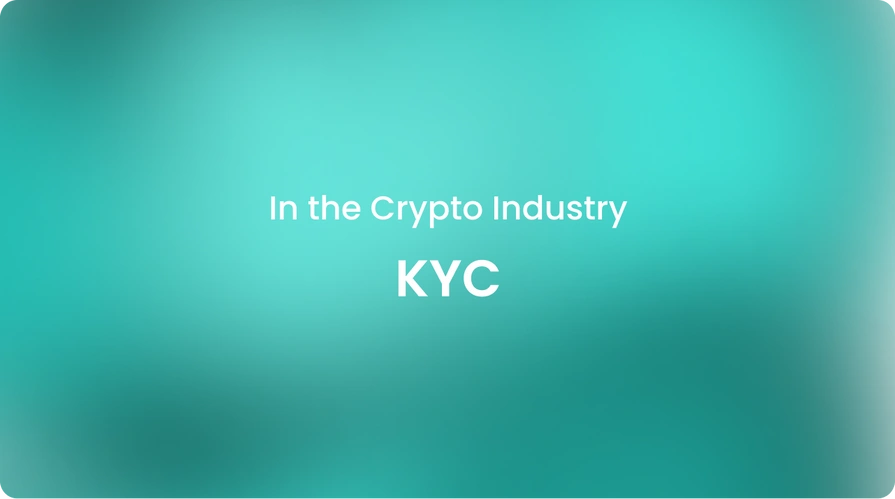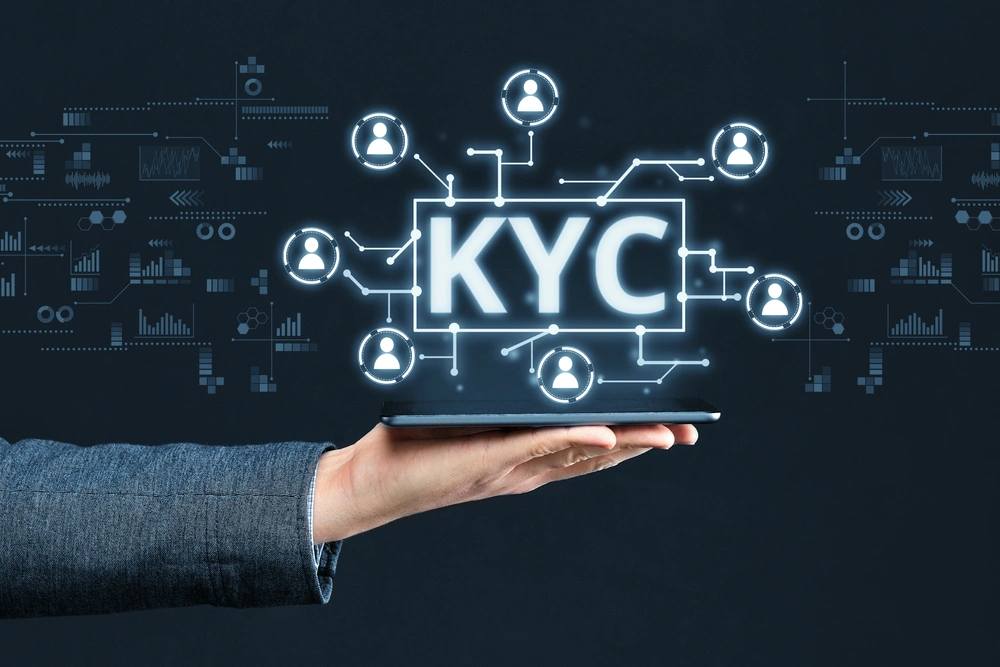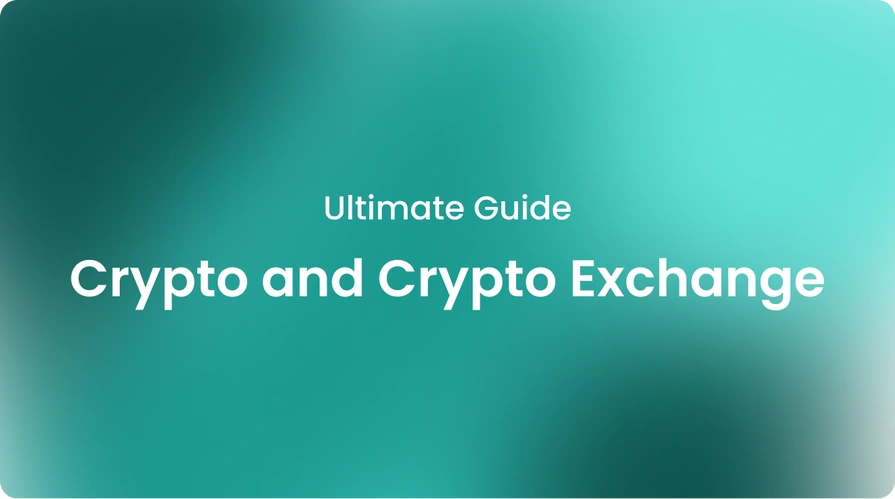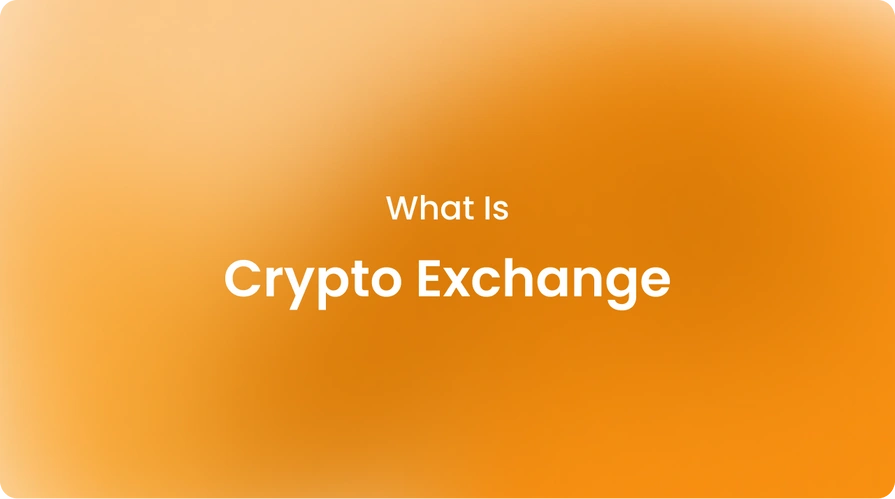|crypto, knowledgehub
What Is KYC in the Crypto Industry?

Knowing your customer (KYC) is a key process in the crypto industry that helps promote security and compliance while onboarding new users. But as a newcomer, navigating KYC requirements can feel intimidating.
Join us in this guide as we break down the basics of KYC in crypto to help you understand its purpose and best practices. Let’s start to explore the KYC process and its importance!
What is KYC? What does KYC in crypto mean?
KYC, or "know your customer," refers to the process where crypto platforms collect and verify customers' identities. It serves two primary purposes: preventing financial crimes like money laundering and complying with regulations such as the Crypto Travel Rule.
At a minimum, KYC involves verifying a user's full name, date of birth, address, and other contact details. Platforms typically request government ID documents for verification as well. Some even use biometric details, like facial recognition, for added security.
Crypto platforms, like banks, now regulate as money service businesses and must comply with KYC/AML (anti-money laundering) rules. During the KYC process, platforms vet new users to establish the "customer due diligence" required under these regulations.
What is the KYC level in crypto?
There are three basic KYC tiers, depending on transaction amounts:
Tier 1 (small transactions)
It requires basic KYC, like email and phone verification.
Tier 2 (medium)
Full identity verification, as well as address and ID proof, is required.
Tier 3 (large)
It involves extra due diligence, like source-of-funds questions and monitoring high-risk activities.
Platforms typically start users at Tier 1 and increase verification levels based on transaction history over time. Crypto exchange volumes also factor into their risk-based approach.
What is the KYC process?
Most crypto exchange platforms follow a similar sequence for KYC:
- Create an account and submit personal details.
- Upload clear pictures of your ID, and sometimes a selfie, for ID matching.
- Address verification can be done via document upload or bank statement scan.
- The platform checks personal data against global watchlists by the platform.
- If verified, your account activates within hours or days, depending on volume.
- Fund deposits or certain withdrawals may trigger re-verification on a periodic basis.
Does KYC affect anonymity and decentralization?
Centralized crypto exchanges that interface with fiat require strict KYC and AML compliance. However, purely decentralized finance platforms and non-custodial types of crypto wallets don't require KYC because they don't hold or transmit funds.
As long as transactions stay fully on-chain, users can still act pseudonymously without sharing private details. In most cases, KYC applies only when entering or exiting the crypto ecosystem via regulated on- and off-ramps. Identity checks are not available for core blockchain functions that remain beyond the reach of identity checks.
Does all crypto require KYC?
Not necessarily. Only regulated crypto businesses, such as crypto exchanges dealing in fiat, must comply with KYC and crypto travel rule requirements.
For example, peer-to-peer crypto transfers or transactions within non-custodial decentralized finance (DeFi) and dApps do not mandate KYC uploads. The same applies to purely on-chain transaction activities like crypto mining or NFT minting.
Can I withdraw crypto without KYC?
In many cases, yes, but it depends on the platform. Small-scale decentralized wallet (DeFi wallet) transactions and transfers usually don't require KYC. In isolated crypto communities, neither do paid transactions between individuals in isolated crypto communities.
However, large fiat withdrawals from centralized exchanges will likely trigger stricter compliance checks. Platforms are required by law to collect identities for sizable crypto-to-fiat conversions to deter financial crimes.
Why is KYC important in cryptocurrency?
Done thoughtfully, KYC helps build trust in cryptocurrency and its potential to compete with traditional finance. KYC promotes compliance by:
- Watchlist checks are used to deter illicit activities like money laundering and terrorism financing through watchlist checks.
- Mitigating the risks for regulated custodians holding sizable customer crypto reserves.
- Assuring regulators that mainstream adoption doesn't weaken anti-financial crime regimes.
- Reassuring law-abiding users that crypto exchanges prioritize security and responsibility over total anonymity.
Mandatory KYC represents a constructive compromise that enables crypto to progress hand-in-hand with established rules promoting economic integrity. Platforms secure crucial partnerships and social permission by demonstrating sound stewardship through faithful compliance.
How long does crypto KYC take?
Most platforms can verify basic personal details within hours if all uploaded data, like IDs and selfies, is clear. More extensive due diligence for high-risk businesses may take 1-3 days.
However, times can vary significantly depending on exchange volumes and backlogs. During busy periods, simple verifications may also take 24–48 hours. Platforms will notify you by email once approved or request clarification if issues arise.
Some top crypto exchanges, such as Cryptobunq, provide instant level 1 verification for fast access via crypto exchange API solutions. For advanced services like large transactions requiring compliance rigor, 1–5 business days is not unusual.
Do crypto wallets need KYC compliance?
Not necessarily; it depends on the specific crypto wallet. Non-custodial wallets, in which users control private keys, do not perform KYC because they do not store any personal data. Many self-hosted wallets are also no KYC.
However, custodial wallet services, like some mobile apps, may subject sizable fiat deposits or withdrawals to compliance checks for the appearance of regulated activities. Major exchanges also typically require identities for advanced portfolio services.
Why is KYC necessary for crypto platforms? What are the benefits of crypto KYC?
To gain the traditional financing access required for growth, crypto platforms must interface with existing regulated infrastructure and conform to Know Your Customer standards. This helps secure necessary banking relationships and builds bridges to welcome regulators over time.
Here are some other key benefits of crypto KYC:
- Promotes trust for newcomers concerned about anonymity abuse.
- Ensures that regulated services prioritize safety by deterring financial crimes.
- For large trades, it allows for seamless crypto-fiat access via trusted on/off-ramps for large trades.
- strengthens legitimacy and accelerates mainstream adoption by engaging with watchdogs.
- By following the required customer diligence, platforms are shielded from hefty penalties.
- Long-term, balanced identity solutions may yield self-sovereign digital credentials.
How is KYC linked to the Crypto Travel Rule?
The Crypto Travel Rule requires crypto businesses to collect customer identity details for transfers exceeding $1,000—complying by year-end 2024. Failure to do so risks losing regulatory licenses.
Platforms that perform due customer diligence upfront via robust KYC programs will be better equipped to seamlessly fulfill evolving travel rule protocols seamlessly. To help clients comply in a privacy-sensitive manner, Cryptobunq has integrated identity-based transaction monitoring.
Cryptobunq offers expert crypto services, from custody and wallet to crypto checkout and invoicing, as a one-stop-shop crypto service provider. You can integrate CBQ crypto services into your business for maximum security and efficiency in the world of blockchain technology. Contact us today!













